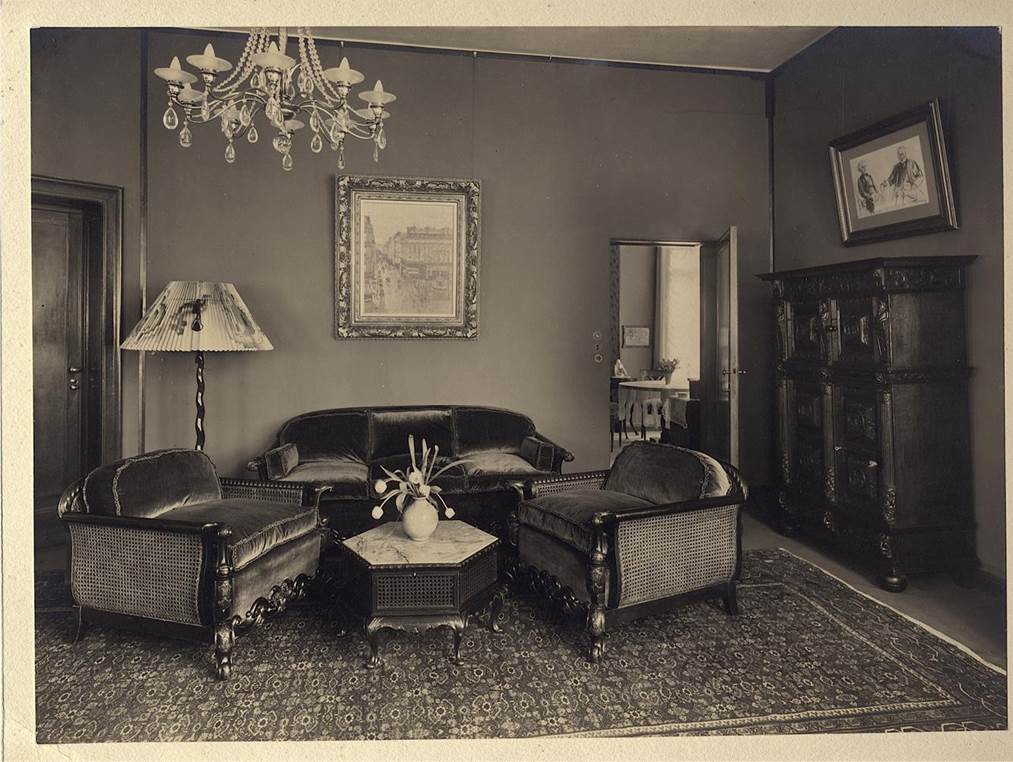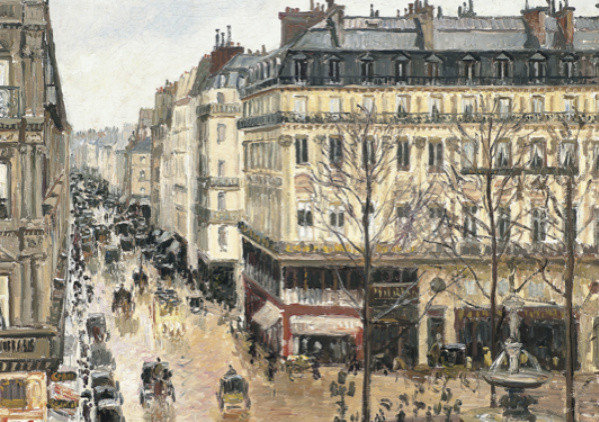
The U.S. Court of Appeals for the 9th Circuit ruled on January 9, 2024 that the Thyssen-Bornemisza Collection Foundation in Madrid is the owner of Rue Saint–Honoré, après-midi, effect de pluie (1892) by Camille Pissarro, a painting sold by German Jew Lilly Cassirer under Nazi duress. After the Cassirer family prevailed in the Supreme Court in 2023 that the 9th Circuit had previously applied the wrong legal test, the question before the 9th Circuit was the choice of which law to apply. In any case where the parties and subject matter are in different jurisdictions (or within overlapping jurisdictions like state and federal), a court must first decide which body of law to apply in analyzing a particular case. Here, the 9th Circuit ruled that Spanish law applied because Spanish law would be harmed more than California law if the other body of law applied (known as comparative impairment analysis). This, in turn, led to the holding that the Thyssen-Bornemisza Collection Foundation acquired good title after holding the painting for long enough that prior claims were extinguished.
The decision is thinly-reasoned. It looks to the “place of relevant conduct” as paramount to choosing applicable law, but concluded that the only relevant conduct was Spain’s purchase in 1993 of the Baron Hans Heinrich Thyssen-Bornemisza’s collection. Not the Baron’s Swiss residence, not his purchase of a stolen painting in New York (not located in Spain when last we checked) in 1976, not the earlier (New York) sale by Knoedler Gallery, nor the painting’s passage through California in the 1950s, nor the source of the defect in the first place: Nazi Germany. Rather, The court insultingly referred to Holocaust survivor and refugee Claude Cassirer’s life in California as a “fortuity.” As the late Justice Antonin Scalia might have said, “pure applesauce.”
The upshot is that a state (Spain, through the TBC) that did not acquire good title to a painting that was indisputably dispossessed by the Nazis will (barring further review) keep this ill-gotten property. Spain should have returned the painting the first time it was asked to do so. Digging its heels in over 18 years of litigation is a mockery of the commitments Spain made in the 1998 Washington Principles on Nazi-Confiscated Art. Nothing about Spanish law is impaired by refusing to honor a transaction at the direction of the Nazis.
The family has vowed to fight on, and good for them. As I often tell people as an example to frame this issue and this case, the picture below is of the painting in Lilly’s home. Now imagine that this was your home, and the very worst person you knew came in and demanded it because he knew you had no power to resist. Would you give up?
Read More
Topics:
Lilly Cassirer,
Rue Saint-Honoré après-midi effet de pluie,
Claude Cassirer,
Foreign Sovereign Immunities Act,
California,
Washington Principles on Nazi-Confiscated Art,
Spain,
FSIA,
Camille Pissarro,
Ninth Circuit Court of Appeals,
Cassirer v. Thyssen-Bornemisza Collection,
Jakob Scheidwimmer,
Sydney Schoenberg,
Eugen Kampf,
Antonin Scalia,
Hans W. Lange,
Federal Republic of Germany v. Philipp,
Philipp v. Stiftung Preussischer Kulturbesitz,
Simon v. Republic of Hungary,
choice of law,
Baron Thyssen-Bornemisza
I’ve been talking quite a bit to friends, colleagues and clients about the impact of last week’s decision in the Cassirer v. Thyssen Bornemisza case. The New York Times had a follow up article yesterday which was an interesting treatment of the various themes at work in the case and in restitution cases in the United States generally these days. In fact, I think the effect is mostly limited, except to the extent that the decision assumes and treats as uncontroversial important principles about sales under duress and is a case that resolved title under the Foreign Sovereign Immunities Act (FSIA). As we predicted, the Times article makes clear that the museum has absolutely no intention of giving the painting back, but did float the idea of some recognition of the historical circumstances, which is progress (certainly compared to other instances in which obvious circumstances of duress are denied).
Read More
Topics:
Lilly Cassirer Neubauer,
Terezin Declaration,
Thyssen-Bornemisza Collection,
Rue St. Honoré après-midi êffet de pluie,
Jacques Goudstikker,
California Code of Civil Procedure § 354.3,
Nazi-looted art,
Foreign Sovereign Immunities Act,
Washington Conference Principles,
Bakalar v. Vavra,
Fritz Grünbaum,
FSIA,
adverse possession,
expropriation exception”,
Restitution,
Marei Von Saher,
sovereign immunity,
Egon Schiele,
Jakob Schweidwimmer,
World War II,
Foreign Sovereign Immunities,
Restatement (Second) of Conflict of Laws § 222,
Altmann v. Republic of Austria,
Camille Pissarro,
foreign affairs doctrine,
Ninth Circuit Court of Appeals,
Museums,
Baron Hans-Heinrich Thyssen- Bornemisza,
28 U.S.C. § 1605

One of the longest running art restitution litigations in the United States has been dismissed for a second time, with another appeal likely to follow. The heirs of Lilly Cassirer Neubauer have been pursuing the return of Camille Pissarro’s Rue St. Honoré, après-midi, êffet de pluie from the Thyssen-Bornemisza Collection in Madrid for more than ten years, but on June 4, 2015 the U.S. District Court in Los Angeles ruled that the Spanish museum has acquired full title to the painting by adverse possession. The key aspect of the decision is the court’s resolution of the choice of law question, namely, should California law or Spanish law apply to the question of who owns the painting? After a lengthy analysis the court determined that Spanish law applies, and that the museum has possessed the painting long enough to have become the owner regardless of the fact that it was sold under duress. So now a case that has already been to the Ninth Circuit Court of Appeals twice will almost certainly head back a third time. The court concluded its decision by appealing to the parties to “pause, reflect, and consider whether it would be appropriate to work towards a mutually-agreeable resolution of this action, in light of Spain’s acceptance of the Washington Conference Principles and the Terezin Declaration, and, specifically, its commitment to achieve “just and fair solutions” for victims of Nazi persecution.” But it is hard to see why that would happen. Notwithstanding the dictates of the Washington Principles, the Collection has been quite content to resist the claim. Now that it has won, it is hard to imagine it suddenly taking a different view.
Read More
Topics:
Lilly Cassirer Neubauer,
Terezin Declaration,
Thyssen-Bornemisza Collection,
Rue St. Honoré après-midi êffet de pluie,
Jacques Goudstikker,
California Code of Civil Procedure § 354.3,
Nazi-looted art,
Foreign Sovereign Immunities Act,
Washington Conference Principles,
FSIA,
adverse possession,
expropriation exception”,
Restitution,
Marei Von Saher,
sovereign immunity,
Jakob Schweidwimmer,
World War II,
Foreign Sovereign Immunities,
Restatement (Second) of Conflict of Laws § 222,
Altmann v. Republic of Austria,
Camille Pissarro,
foreign affairs doctrine,
Ninth Circuit Court of Appeals,
Museums,
Baron Hans-Heinrich Thyssen- Bornemisza,
28 U.S.C. § 1605,
Welfenschatz
In a decision long awaited by artists and auction houses in particular, the Ninth Circuit Court of Appeals has ruled that the California Resale Royalty Act of 1976 (CRA)—America’s only droit de suite—is unconstitutional top regulate any sales of art outside of California. The court concluded, however, that that portion of the law is severable from the rest, and let the regulation of in-California sales stand for further interpretation by a subsidiary panel of the appeals court. There are two likely aftereffects of this decision. Galleries and auction houses can put any concerns to rest about sales in New York in particular, but one has to wonder about the effect it will have on putting items for sale in California, which will effectively have a premium not present in other states. It also raises the possibility that the resulting piecemeal framework will motivate movement on the pending federal bill (the American Royalties Too (ART) Act of 2015) concerning resale royalties. Could this be the development that prompts movement in Congress?
Read More
Topics:
Legislation,
Resale Royalties,
Chuck Close,
Supreme Court,
Christie's,
Cal. Civ. Code § 986(a),
Dormant Commerce Clause,
droit de suite,
sales tax,
Cal. Redev. Ass’n v. Matosantos,
use tax,
American Royalties Too (ART) Act of 2015,
California Resale Royalty Act,
Copyright,
Ninth Circuit Court of Appeals,
Sotheby's,
eBay
As the ball teeters above Times Square, and the Glühwein begins to mull on the Art Law Report stove (don’t forget the cinnamon!), a gimmicky but apropos act of reflection is to look back at the biggest stories of 2014, both in art law generally and for yours truly and Sullivan & Worcester LLP. In highly subjective, unverifiable, and immediately criticizeable order, here they are. Thanks as always for reading, and best wishes for in interesting, prosperous New Year. If you agree, disagree, or otherwise, please continue to stay in touch and carry the conversation forward.
Read More
Topics:
Comedy Central,
Deaccession,
Schwabinger Kunstfund,
Charitable Foundations,
National Gallery of Art,
Knoedler,
Cornelius Gurlitt,
Blogs,
authentication,
authenticity,
parody,
William Corcoran,
Moral Rights,
Above the Law,
Germany,
George Washington University,
Glühwein,
Nazi-looted art,
Gurlitt Collection,
Norton Simon,
Graffiti Art,
Superior Court,
Cy Pres,
Washington DC,
VARA,
Detroit Institute of Arts,
Bankruptcy,
Corcoran College of Art + Design,
Dumb Starbucks,
Preemption,
Asher Edelman,
DIA,
Restitution,
Marei Von Saher,
Artmentum GmbH,
Bavaria,
Sullivan & Worcester LLP,
World War II,
Copyright,
Times Square,
Art Fairs,
Kunstmuseum Bern,
Corcoran Gallery,
Ninth Circuit Court of Appeals,
Museums,
Raubkunst,
Detroit Bankruptcy,
Fair Use,
Münchner Kunstfund,
Foreign Cultural Exchange Jurisdictional Immunity,
Graffiti,
Civil Forfeiture,
Art Law Report




